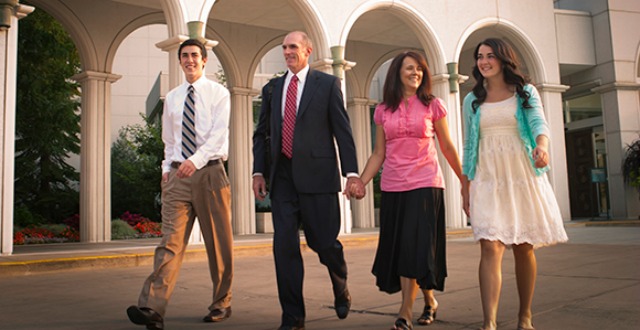Question
Gramps,
What does being the Lord’s covenant people have to do with how I dress or act?
Lee
Answer
Dear Lee,
When the Lord enters into a covenant with an entire group of people, He includes a set of commandments to set them apart and mark them as His holy people. I encourage you to click on that link to learn more about the Law of Holiness throughout the dispensations.
It might not be clear as to how our dress or speech makes us holy, and Elder Christofferson has even noted this seeming incongruity:
Zechariah prophesied that in the day of the Lord’s millennial reign, even the bells of the horses would bear the inscription “Holiness unto the Lord.” In that spirit, the pioneer Saints in these valleys affixed that reminder, “Holiness to the Lord,” on seemingly common or mundane things as well as those more directly associated with religious practice. It was inscribed on sacrament cups and plates and printed on certificates of ordination of Seventies and on a Relief Society banner. “Holiness to the Lord” also appeared over the display windows of Zion’s Cooperative Mercantile Institution, the ZCMI department store. It was found on the head of a hammer and on a drum. “Holiness to the Lord” was cast on the metal doorknobs of President Brigham Young’s home. These references to holiness in seemingly unusual or unexpected places may seem incongruous, but they suggest just how pervasive and constant our focus on holiness needs to be.
The purpose behind the Law of Holiness is to mark the Lord’s people as different from others but, as with the outward ordinances, it bears little effect if it is not accompanied by a real and substantial change in our nature. As I observed earlier:
It is not enough for our actions and our God to be holy, but we ourselves must also let this holiness seep into our very beings. We must be holy. The ideal was captured in reality in a city so holy, it was named for it. “And … [Enoch] built a city that was called the City of Holiness, even Zion” (Moses 7:19). As a people, Latter-day Saints are striving (like Enoch’s people) to have God’s own name (Man of Holiness) placed on us by having His character place in us. We have temples that have been set apart to the Lord (Holiness to the Lord) that invite us to be holy. We have the charge to be a Zion people, set apart from Babylon, Idumea, or the world (D&C 1:36, D&C 133:14, see also D&C 133:5).
Gramps







